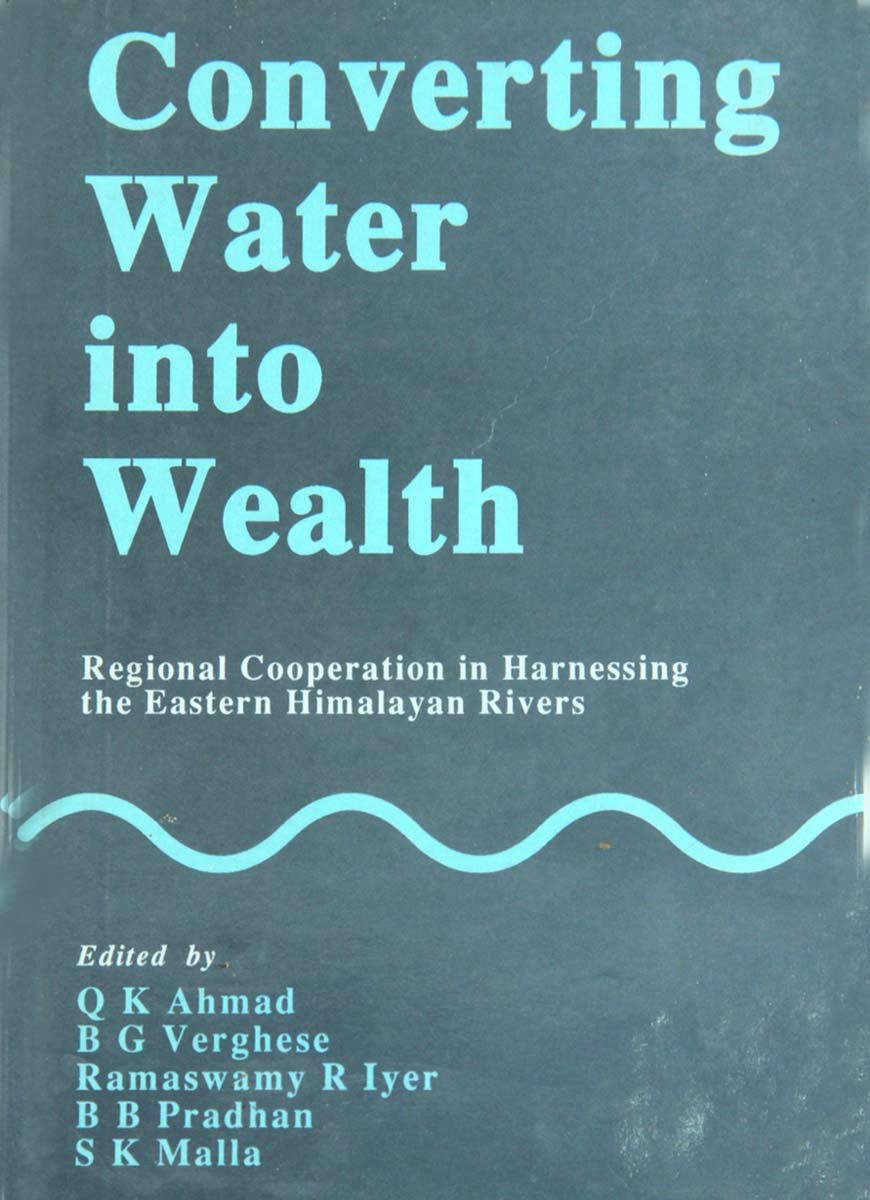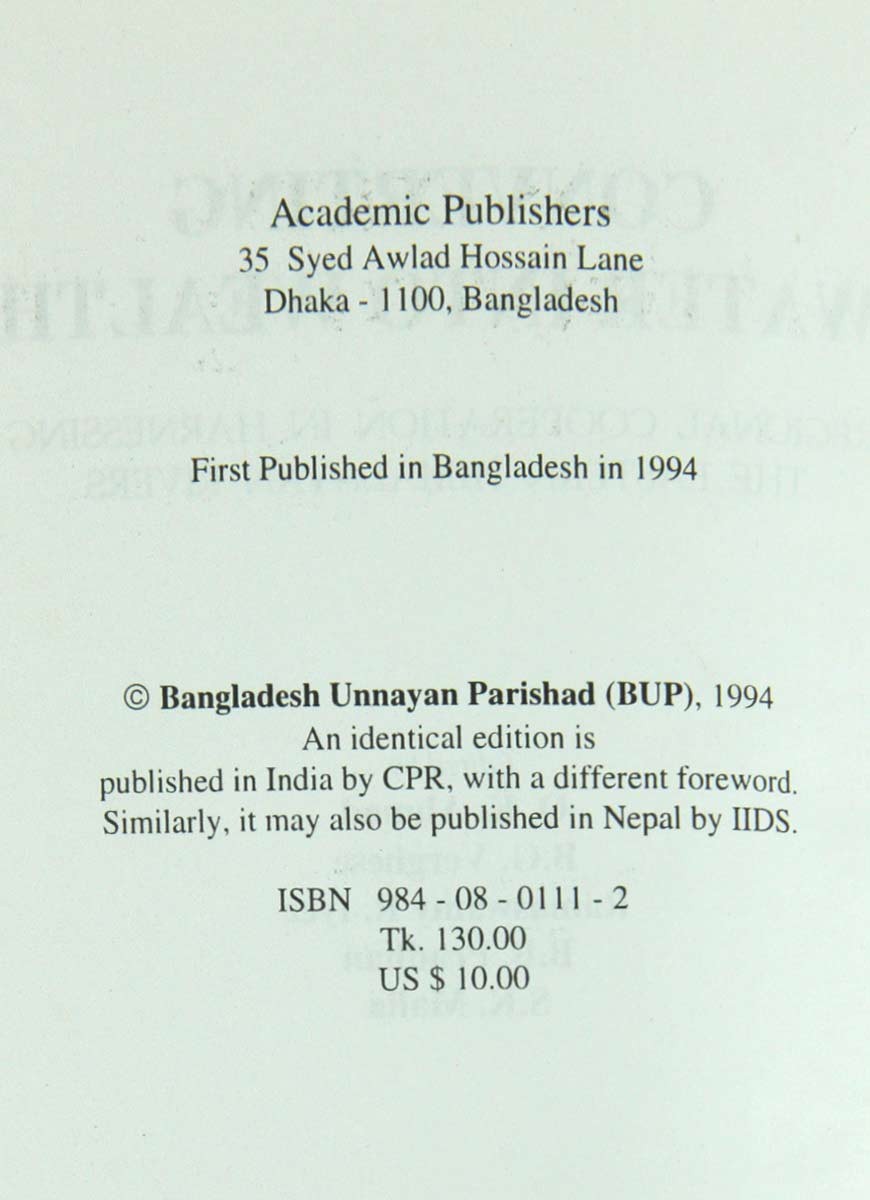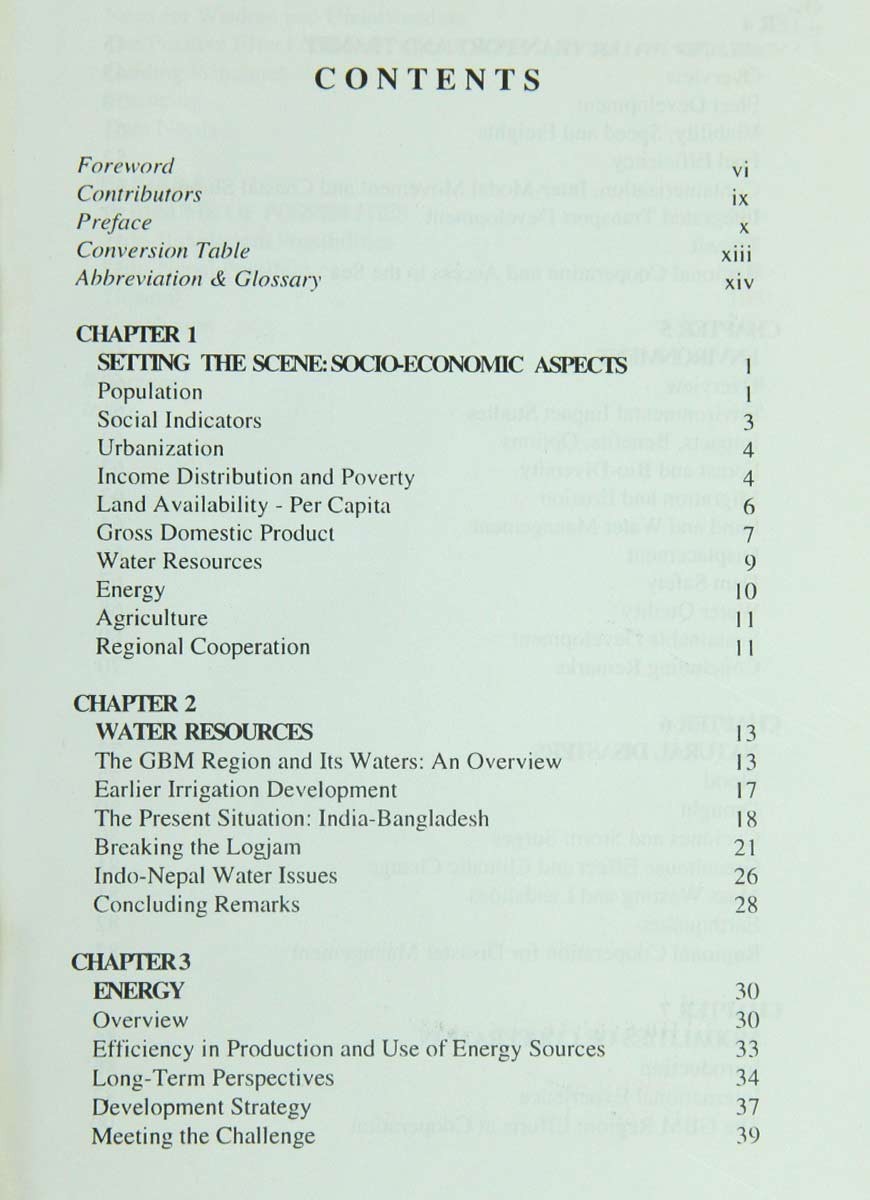





Note : All deposit is refundable
This volume is an outcome of studies conducted over the past three years in Bangladesh, India, and Nepal respectively under the auspices of Bangladesh Unnayan Parishad (BUP), Centre for Policy Research (CPR), and Institute for Integrated Development Studies (IIDS). The process involved, first, the preparation, over about two years, of a national volume in• each country dealing with water, its utilization and related subjects, focusing on the Ganges-Brahmaputra-Meghna (GBM) region, and, then, joint efforts by the three institutes spanning over about one year resulting in this volume. e As the national volumes were being prepared, research teams from the three institutes met from time to time and exchanged ideas and relevant materials and commented upon one another's drafts. However, all responsibility for each national volume remains with the national institute/authors. The regional volume is largely based on the national volumes. Its chapters were drafted by designated scholars from the three institutes, which were then jointly read, edited and agreed upon by the contributors to and the editors of the volume. The task took several meetings of the contributors and editors to complete. The meetings were held • in Dhaka, New Delhi, and Kathmandu, always in a truly cooperative spirit. Understandably, country perspectives differed on certain issues. Efforts were made to find common ground and develop a common understanding of keeping common good in view. Wherever this could not be achieved, differences in perspectives have been stated. It may be mentioned here that the three national volumes contain national perspectives in some detail on various issues. However, it is believed that this team of scholars from Bangladesh, India, and Nepal has succeeded in jointly suggesting ways of breaking, the logjam and moving forward in a cooperative spirit in harnessing the Eastern Himalayan rivers for the equitable benefit of all concerned. The most powerful idea behind this work and the call being made through it for cooperative efforts among the countries concerned is that such efforts, particularly in harnessing, the eastern iiimaliaN'an risers, constitute a win-win positive for all the parts: importing countries. It is important in this conte\t that short-term critical need the countries slit' urgently addressed; and, the time„ I longer term still wider view from human development vise, it's replied,'(,4 the hitherto ruling narrow that con, haul, human rogue
